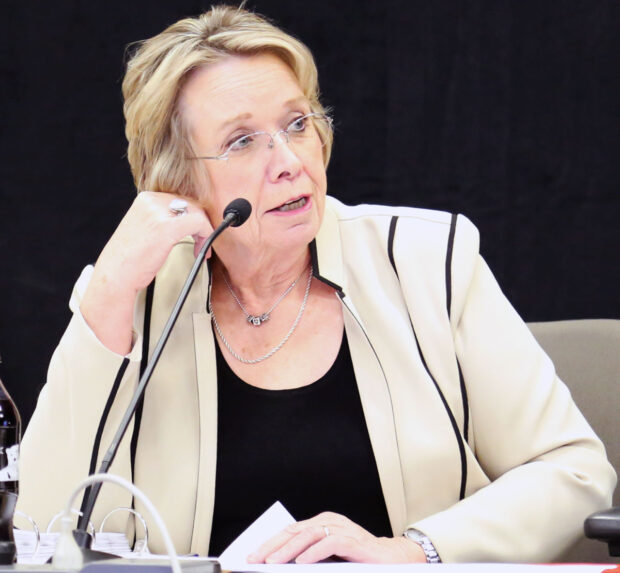In a potential preview of the 2020 legislative session, State Board of Education members applied heavy scrutiny to schools chief Sherri Ybarra’s K-12 budget proposal Wednesday.
Ybarra kicked off the discussion by presenting her nearly $2 billion 2020-21 proposal to the State Board, walking members through $100.8 million in proposed new spending — a 5.3 percent increase.
As previously announced, Ybarra is seeking:
- $40 million in salary raises to benefit veteran teachers.
- $2 million in increased funding for a growing advanced opportunities program that helps students earn college credits, bringing total funding to $20 million.
- $1 million for training to help educators respond to students’ social and emotional needs.
- $500,000 to expand the state’s mastery-based education network.
Ybarra said her budget aligns with recommendations from Gov. Brad Little’s K-12 education task force, “Our Kids, Idaho’s Future,” by emphasizing raises for veteran teachers.
After Ybarra’s rundown, State Board members took turns asking Ybarra and her budget chief to explain how students and schools would see a return on the taxpayers’ investment.
Themes of the debate included competition for what could be scarce financial resources and not overlooking higher education budget requests.

“How can we evaluate the results of the additional $100 million of investment?” board member Emma Atchley asked Ybarra. “Are we going to see better graduation rates, see more students succeeding and how are we measuring that?”
Ybarra responded by saying Idaho is not ranked 49th in the nation, more like 25th, and that she believes strategic education investments are paying dividends. She highlighted the focus on youth literacy and the new Idaho Reading Indicator test. She also mentioned the mastery-based education network, although she cautioned mastery is a “generational change” that takes a few years to show up in data.
“We have some work to do with our student subgroups, but overall, we are seeing quite a bit of return on that investment that we have made,” Ybarra said.
Atchley and fellow board member Linda Clark expressed concerns that a $100 million K-12 increase could eat up funding at the expense of higher education.
“It’s tough to ask to fund part of a system and provide no additional money for the rest of the system,” Clark said.
Atchley said she is concerned that the state has not funded a 3 percent pay increase at the postsecondary level, forcing colleges and universities to fill the gap.
Tim Hill, Ybarra’s deputy superintendent for public school finance, said the $100 million increase in Ybarra’s 2020-21 request isn’t as straightforward as it initially seems. Almost $38 million will address growth in the current system, as opposed to expanding programs. Hill cited an increase of support units, which are roughly equal to an increase in classrooms, and rising transportation costs.
“Two percent out of our 5 percent (increase) is just growth, not anything new,” Hill said.
Although the 2020 legislative session doesn’t kick off until Jan. 6, Ybarra is likely to get a preview later this month. She announced Wednesday that she is preparing for an Oct. 29-30 meeting with the House Education Committee and the State Board to review ways programs are administered and how state and federal funds are used.
“I’m encouraged legislators are taking an interest in getting more involved ahead of the 2020 legislative session,” Ybarra said.
Reexamining Idaho’s ESSA plan
In other action Wednesday, State Board President Debbie Critchfield announced the board will devote its February work session and meeting to reviewing Idaho’s consolidated plan to comply with the federal Every Student Succeeds Act.
Accepted by the feds in 2018, the plan is important because it includes the state’s accountability plan for education and longterm academic goals.
“We’ve never spent time as a full board going over that — where do we want to be with that, what are our goals and are they still valid?” Critchfield said, adding she felt it was vital to have that discussion in a public setting.
Last week, Idaho Education News reported that for the second consecutive year Idaho missed all 22 of the annual benchmarks for math and English for student subgroups.
